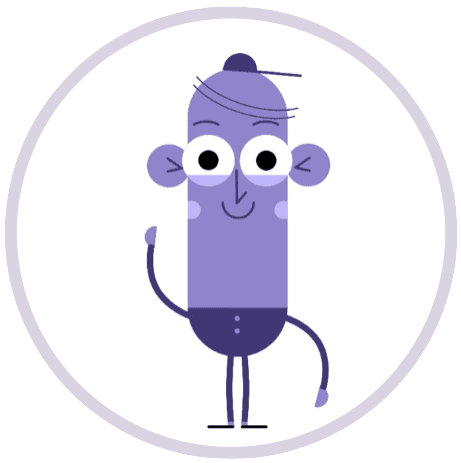Grade 10
Being prepared for next year… AHHH!
In this section you can:
- Find out about being well prepared for Grade 10 by the experts.
- Think about the critical questions that need answers.
- Get answers to your frequently asked questions.
- Get our insider tips.

The Expert View
Find out what you should be thinking about as Grade 11 approaches…
Read this to get the complete picture…

Introduction
Not too long to go before you become an IB diploma student, the final phase of your school career. The IB Diploma, or high school diploma, is important for you as it is your ticket to higher education. Understandably, you would like to be well prepared. We are going to give you a few tips about things you can do before you start in Grade 11.
Overview
Maybe you haven’t finalised your subject selections yet, in which case you need to go and talk to your teachers, your IB Diploma Coordinator and your college counselor. Wigsbury has produced a module on this topic to give you some extra tips and advice.
When you have finalized your subject selection, there are several things you can do. You’re probably already looking forward to the end of the school year, but in order to make your life easier in grades 11 and 12, you might like to think about doing some or all of the following:
Academic Preparation – IB Diploma related
- Familiarize yourself with the requirements of the IB diploma
- Preparatory reading
Extra-curricular related
- Summer programs
- Holiday
- Visit family members/home country
- Holiday job
- Spend time with your friends
- Work on a project
- Time for your hobbies
Action ideas
Things you can do that will make a big difference.
Action idea 1:
List the IB diploma subjects you are taking and look carefully at the curriculum and how they are assessed.
action IDEA 3:
Talk to some grade 11 and 12 students and ask them for some advice on how to manage the IB diploma program work load.
action idea 2:
Do lots of wider reading during the holidays.
Academic Preparation
The advice below applies to students taking the full IB diploma and also to students taking IB certificates as part of their high school diploma. Whichever category you fall into, just follow the subject based advice on how to prepare yourself.
Before we start looking at the detail of how you can prepare for each subject, take a quick look at this video, it’ll help you understand what the IB Diploma is all about. IB DP video
An important part of being an IB student is time management: the more preparatory work and planning you can do over the summer vacation between grades 10 and 11, the easier it will be for you during your two years of the IB diploma program.
Let’s just remind ourselves of the IB diploma requirements:
Three higher level subjects, three standard level subjects plus Theory of Knowledge, Extended Essay and CAS (Creativity, Activity and Service)
For each of your six IB subjects plus ToK, there is a published curriculum on the IB website. IB diploma curriculum
Firstly, you need to go and talk to your IB Diploma Coordinator and all of your subject teachers, ask them for an overview of what units will be taught in each subject in your school, in other words the curriculum that your school is using. This may vary from school to school, and subject to subject. E.g. each school will develop its own reading list for Literature and Lang/Lit.
Now it’s time to start drilling into the details: your final IB grade in each subject will be a mixture of external assessment (exams in Grade 12) and internal assessment (IAs) that will be spread throughout the course. It is helpful for you in your time management planning to know when these IAs are due. Some schools publish dates to turn in the IAs. Put these in your calendar.
Having established a timeline and assessment dates, it’s now time to see how you can prepare in each subject area.
Language A: Literature and Lang/Lit.
Ask your teacher for a reading list of books you will be studying and the order in which you will study them. Read and annotate these books during the summer holiday.
Mathematics
Ask your teacher for the textbooks you’ll be working from. You can look through these and even do some self-taught practice units.
Theory of Knowledge
Ask your teacher what areas you will be exploring, and also ask for a suggested reading list. Background reading is particularly useful.
CAS
Creativity – arts, and other experiences that involve creative thinking.
Activity – physical exertion contributing to a healthy lifestyle.
Service – an unpaid and voluntary service
Ask the CAS Coordinator in your school to give you a list that you can get started on.
Language B
Ask your teacher for the textbook you’ll be working from. You can look through this and even do some self-taught practice units.
Science
Ask your teacher for the textbooks you’ll be working from. You can look through these and even do some self-taught practice units.
The Arts
Ask your teacher what projects you will need to do. You and your friends could make a start preparing for these.
Extended Essay
Your school will have a teacher responsible for guiding students through the extended essay process. Go and talk to the teacher and ask for a copy of the guidelines, and also ask for tips on how to go about selecting a topic and brainstorming ideas for that topic.
Some critical questions that need to be asked
Sometimes the questions are more important than the answers.
question 1:
Am I good at time management?
If not, what can you do to keep yourself organized?
question 3:
What do I need to do before the IB diploma starts in grade 11?
question 2:
What do I hope to get out of the IB diploma?
Extracurricular Activities
Summer programs: There is a huge range of summer programs available, everything from university courses for college credits to football training camps. Take your pick, do something that you will enjoy. Wigsbury has made a module on this topic with a lot of detailed information and useful links for you to follow up on.
Holiday: Maybe your parents have planned a family holiday. Relax and enjoy, because in approximately three years you’ll be a university student and you probably won’t have time for this anymore.
Visit family members/ home country: If you’re living away from your home country and family it’s important to touch base during the holidays. If you are studying in an international school surrounded by people from all over the world you are probably speaking English all day in school, it’s a good idea to stay grounded in your own culture, visit friends in your home country, speak your own language – a taste of normal life.
Holiday job: It’s time to start thinking about work, perhaps a holiday job. You don’t need to work for the whole summer, after all you have got the IB to prepare for. It would be a good idea to gather a little bit of experience in the world of work; this will look good on your university application which you will be doing at the beginning of grade 12. It’s something new and exciting for you, and you can earn some money.
Spend time with your friends: Now you have time to just hang out with your friends, play sport, do some fun activities. Just relax and enjoy yourself.
Work on a project: Maybe you have an idea for a project you would like to do, the summer vacation will be a good time. Perhaps you want to get some paintings together for an art exhibition, maybe you want to put on a play with your friends, perhaps you want to organize a sports tournament or do some voluntary work. Perhaps you and your friends want to improve the environment by planting trees. There are a lot of projects that you can be involved in and some at least can count towards your CAS.
Time for your hobbies: Time is a precious commodity as you probably already realize, the pressure of schoolwork takes away time from your hobbies. The summer vacation is an opportunity to devote more time to your hobbies.
Sometimes students tell us they get bored during the holiday; if you find yourself in this situation, just read back through this module, there is plenty to keep you busy!
.
Tips & Tricks
Some insider tips that can really make the difference.
tip 1:
Put all the important dates into a calendar.
tip 2:
Consider using a ‘countdown’ app to warn you of upcoming deadlines.
Wigsbury Frequently asked questions
Quick answers to the important questions
I am not very good at time management and I heard that the IB diploma can get really stressful. What can I do?
It is a good idea that you are addressing this issue now before the IB diploma starts. There are several things you can do: the most important thing is to understand what work needs doing and what the deadlines are. Get hold of a calendar and enter all the deadlines, maybe you could ask your IB Diploma Coordinator or a teacher for help. This is the overview, now you have to time manage each day. A suggestion is, write down what you do each hour of each day for two whole weeks. You will soon see if you are using your time effectively. By doing a little reorganizing and focusing you’ll be amazed by how much more you can achieve, as well as how much time you can free up for doing what you want to do – hobbies etc.
My friends call me up during the summer holiday and ask me to go and play football with them. My mom says I have to stay in and work. What can I do?
What do you need to do: football or work? The answer is both. Try getting up a bit earlier in the morning and doing your work (this will keep mom happy…always important) and then that will free up plenty of time in the rest of the day for you to meet up with your friends.
I have already been looking at the demands of the IB diploma and I worry that it might be too much for me, even the preparation is daunting and I’m facing two years of the IB diploma. What do you advise?
There is no disguising the fact that if you are a full IB diploma student you have a lot of work to do, and you also derive a lot of benefits from successfully completing the program. We suggest that you go and talk to your IB Diploma Coordinator and also your college counselor. These two people can advise you on your academic suitability for the IB diploma, and in the case of your college counselor, he/she can advise you on whether you need an IB diploma to apply to your chosen universities, or whether you could apply with a high school diploma.
I am new in an international school and I only speak one language, English. I know I have to study a second language in the IB diploma, will I have to learn a new language over the summer holidays to catch up?
No. The IB diploma offers language courses for complete beginners. They’re called ab initio.
I am not very good at math but my dad insists that I take higher level math in the IB diploma, he has organized a tutor to come and teach me each day. I feel all my time will be eaten up preparing for math and then there will be no time left to prepare for the other subjects.
Most schools advise students in grade 10 which level they are best suited to – higher or standard. It may be a good idea to persuade your father to speak again to the math teacher and the IB Diploma Coordinator.
I will be travelling with my parents for most of the summer vacation and I won’t have time to do all the preparation suggested here in this module. What do you advise?
You need to set some priorities; I suggest you have a look through the curriculum so you have a quick overview of what’s coming, calendar the important deadlines and then focus on preparing/wider reading in your weakest subjects.
My parents said I can do a sports camp this summer, but only if I first do some preparation for the IB diploma. What can I do?
Divide up your time, do the IB preparation and then you will be able to relax and enjoy your sports camp.

